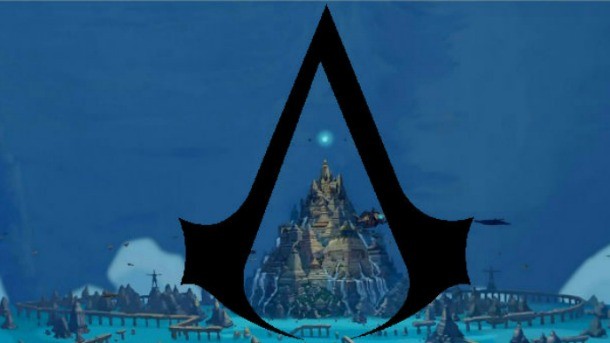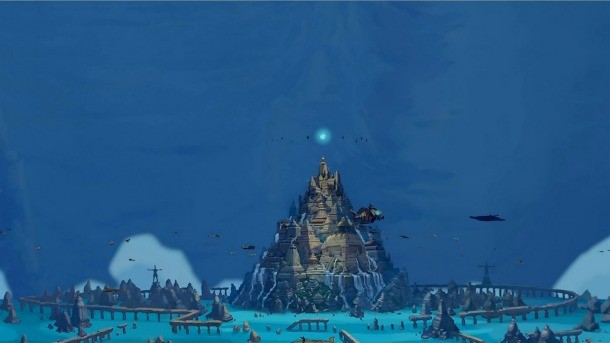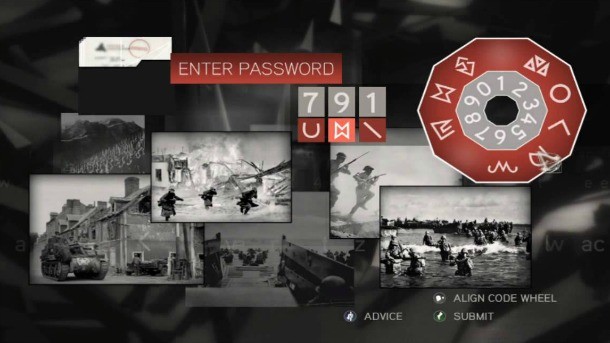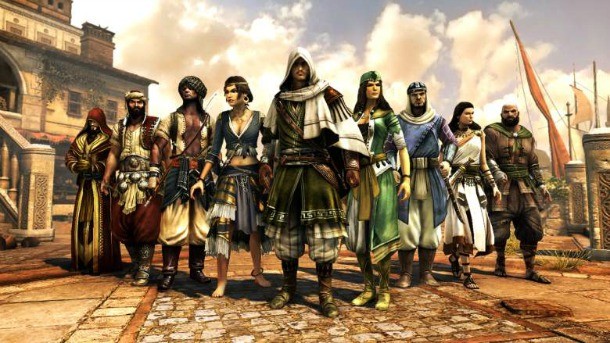Five Potentially Crazy Ideas For The Future Of Assassin's Creed

Annualizing a franchise means having to regularly introduce new ideas to keep it from becoming stale. Each year, Assassin’s Creed introduces a new design philosophy, whether it’s controlling twin siblings, assassinating targets alongside friends, or sailing the high seas, in order to differentiate entries and maintain player interest.
Below are five unique and potentially divisive suggestions to implement in future Assassin’s Creed titles. Because of how unorthodox they are, each concept is followed with a reason for why it could work, as well as an argument for why it may just as likely fail. We welcome your own opinions in the comments.

Control A Neutral Protagonist With A Choice-Driven Narrative
Assassin’s Creed IV’s Edward Kenway was an interesting departure from traditional series protagonists because he wasn’t truly an Assassin until the last third or so of the game. The pirate captain masquerades in the iconic hood while largely pursuing his selfish goals. Let’s take that idea further with a hero who has no association to either group, but is desired by each. Players could interact with and perform tasks for both factions, providing an alternative viewpoint on both ideologies. Eventually, a situation arises that forces players to permanently choose a side, dramatically altering the events moving forward. This would also provide replay value for anyone who wants to experience the opposite path.
Why It Works: With exceptions such as Shay Cormac in Assassin’s Creed Rogue, Ubisoft has tried – and mostly failed – to paint both groups as shades of gray. This approach could effectively highlight the differences between the groups while also pointing out the good they each hope to accomplish. Providing an objective viewpoint and allowing the player to side with the cause they deem just may be purest method of capturing the moral ambiguity the Assassin/Templar war is supposed to embody.
Why It Doesn’t: An interesting hero is crucial for getting invested in the story, but a neutral protagonist could wind up being a boring blank slate that players have to define by their choices. Plus, Ubisoft has struggled with ambiguity; “Assassin” and “Templar” are essentially synonyms for “good” and “evil,” respectively.

Set A Game In Atlantis
Ubisoft excels at creating compelling period pieces, but instead of keeping things grounded to actual events, what if Ubisoft tackled something a bit more fantastical? Atlantis is the first idea that comes to mind, as it’s one of the most fascinating and storied locations in mythology, plus it’s rarely explored in video games. From a story perspective, the lost continent could be established as being a part of the First Civilization that fell to ruin due to a struggle over pieces of Eden. Naturally, the protagonist would be a First Civilization Atlantean, putting players in the shoes of this ancient race for the first time.
Why It Works: If one series could do Atlantis justice, it’s Assassin’s Creed. Previous real-world cities have been phenomenally realized, and Atlantis’ alleged Greek/Mediterranean architecture would be a wondrous sight to behold. Thanks to the First Civilization’s hyper-advanced technology, the sky’s the limit in terms of creative, possibly otherworldly weapons, equipment, and traversal options. Most importantly, players would experience a first-hand account of a piece of First Civilization history.
Why It Doesn’t: Experiencing an alternate take on real history is one of the primary draws for many fans, myself included. Personally, I’m open to experimentation, but I can easily understand why others would be averse such a drastic departure. Using a fictional setting means Ubisoft will basically have to make up history, which could potentially derail the overarching narrative more than it already has been.

Completely Rip Off The MGS V Buddy System
Bringing specialized buddies into the field was one of the strongest aspects of Metal Gear Solid V, and a similar mechanic could work for Assassins’ Creed. Instead of just having faceless underlings perform the same duties, players instead have a smaller pool of more fleshed-out characters who sport unique abilities suited to different situations. Perhaps a Quiet-like sniper who neutralizes enemies from a distance or even their own dog that sniffs out memory shards, distracts guards, and, of course, bites Templars in the butt.
Why It Works: As proven by The Phantom Pain, there’s a satisfaction in choosing the right partner for a job, having them carry some of the load, then watching them progress and acquire new skills. Buddies also present another batch of potentially interesting personalities for players to grow attached to, on and off the streets.
Why It Doesn’t: Competent A.I. companions are tough to pull off, and the series’ unfortunate history of technical hiccups could make this an extremely risky venture. Terrain and traversal would also have to be taken into account and could be tricky depending on the buddy (can the dog scale buildings too?). Not to mention that fans may not want to be saddled with buddy at all.

Reintroduce the Truth
The Truth mystery was one of the most exciting and intriguing aspects of Assassin’s Creed lore, and the puzzles surrounding them provided a fun and challenging diversion. Reinserting it back into the series has been requested by a vocal portion of the fan base.
Why It Works: The Truth was arguably the most talked-about aspects of the earlier titles, igniting a wild fire of fan theories and giving players a plot point to look forward to in each release. If Ubisoft can craft another mystery as gripping as pseudo-sci-fi Adam and Eve fleeing unknown pursuers, they could reinvigorate an excitement around an aspect of the franchise that hasn’t existed since Assassin’s Creed III.
Why It Doesn’t: The fire has pretty much cooled on the First Civilization mystery /modern-day plotline and what’s present isn’t all that interesting. Fans simply might not be as invested in that element of the story as before, and asking them to solve a ton of complex puzzles centered on it may be asking too much–especially if the payoff winds up just being another narrative letdown.

Competitive Multiplayer-Only Entry
Assassin’s Creed’s competitive multiplayer was a generally well-received feature in the titles it appeared in. Players hunted each other while blending into crowds and other hiding places, creating a more cerebral variant of traditional online modes that fit within the Assassin’s Creed framework. Syndicate removed multiplayer entirely, but what if the next entry was fully dedicated to it?
Why It Works: Building a full release around the concept could allow Ubisoft to expand on the mode in new, exciting ways. Perhaps they could construct a full-sized city filled with players engaged in a massive (and deadly) game of hide and seek.
Why It Doesn’t: Multiplayer offshoots of established franchises seem to carry a negative stigma, proven by the less-than stellar reception games like Umbrella Corps and especially Metroid Prime: Federation Force have received. An Assassin’s Creed title adopting the same approach would likely face the same backlash. Also, the likelihood of such a massive online infrastructure faltering is a concern.









